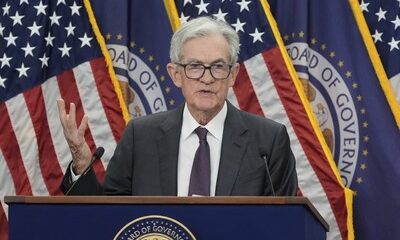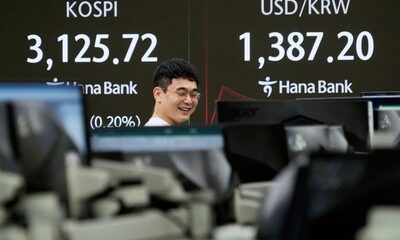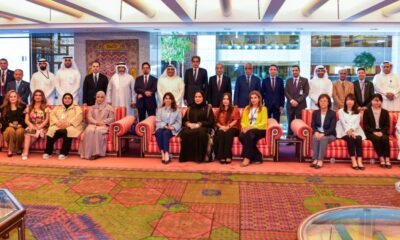KUWAIT CITY, Aug 13: The global economy showed signs of relative improvement in the second quarter of 2025, driven primarily by accelerated spending on imports in anticipation of higher US tariffs, alongside a general improvement in global financial conditions. This was revealed by Jamal Al-Loughani, Secretary-General of the Arab Energy Organization (AEO), in a statement to Kuwait News Agency (KUNA) on Wednesday, following the release of the organization’s second quarterly report on the global oil market.
Al-Loughani noted that the global economic growth rate forecast for 2025 was revised upward to 3%, compared to the earlier forecast of 2.8%. He attributed this positive shift to factors such as improved financial conditions and preemptive import spending. However, he cautioned that the lack of comprehensive trade agreements continues to stir concerns about the long-term impact of ongoing global trade uncertainties.
Despite this uptick in global growth, Al-Loughani pointed to a concerning 12.1% decline in the average spot prices of the OPEC basket of crudes, which fell to USD 67.4 per barrel during the second quarter. The prices of crude oil futures also recorded quarterly losses, with Brent crude and US West Texas Intermediate (WTI) falling by 10.8%, reaching $66.8 and $63.7 per barrel, respectively.
The AEO Secretary-General attributed the drop in oil prices to several factors, including shifts in US trade policy, growing concerns about a potential slowdown in global economic growth, and weaker oil demand. Additionally, he mentioned that the downgrade of the US sovereign credit rating due to rising government debt and a slowdown in China’s industrial production and retail sales further dampened investor sentiment.
Global oil supplies showed a slight increase, rising by 0.4% compared to the previous quarter, reaching 104 million barrels per day. This uptick was largely due to increased output from OPEC+ nations and the United States. On the demand side, however, global oil consumption saw a modest decline of 0.03% quarter-on-quarter, influenced by weaker demand from China and other Asian countries.
OPEC member states experienced a 9.5% decrease in crude oil exports during the second quarter of 2025, dropping to approximately $100 billion. This drop in revenue was primarily attributed to falling oil prices. Al-Loughani noted that these developments had a direct impact on the economic performance of member states, with a decline in oil revenues negatively affecting public finances and external accounts.
Despite these challenges, he emphasized that OPEC member states continued to pursue economic reforms aimed at reducing inflation, stimulating investment, and boosting labor market growth. Furthermore, the non-oil sector provided some support to these economies, helping to mitigate the overall economic impact.
Looking ahead, Al-Loughani expressed optimism for the continued growth of the oil sector, particularly with the OPEC+ decision to implement additional voluntary cuts in April and November 2023. These cuts are set to gradually increase production, reaching 411,000 barrels per day in July, 548,000 barrels per day in August, and 457,000 barrels per day in September. This increase in oil production is expected to positively affect oil revenues, which remain a crucial source of national income for member states.
Despite these positive steps, Al-Loughani warned that the global oil market remains surrounded by uncertainty. While OPEC forecasts indicate a decline in oil supplies from non-OPEC+ countries in the third quarter of 2025, global oil demand is expected to rise to approximately 105.5 million barrels per day. These projections, however, remain speculative due to several ongoing uncertainties, including escalating global trade tensions, geopolitical risks in the Middle East and Eastern Europe, and concerns over global economic growth.
Al-Loughani praised the continued efforts by OPEC+ countries, including six members of the Arab Energy Organization, to maintain balance and stability in the global oil market. These ongoing precautionary measures are aimed at ensuring the oil market remains resilient amid global economic and geopolitical challenges.
While the global economy has shown signs of recovery in the second quarter of 2025, the outlook for the oil market remains volatile, with both supply and demand factors contributing to continued uncertainty.

 Latest News16 hours ago
Latest News16 hours ago
 Latest News15 hours ago
Latest News15 hours ago
 Business22 hours ago
Business22 hours ago
 Business21 hours ago
Business21 hours ago
 Business7 hours ago
Business7 hours ago
 Latest News24 hours ago
Latest News24 hours ago
 Latest News21 hours ago
Latest News21 hours ago
 Politics19 hours ago
Politics19 hours ago


























